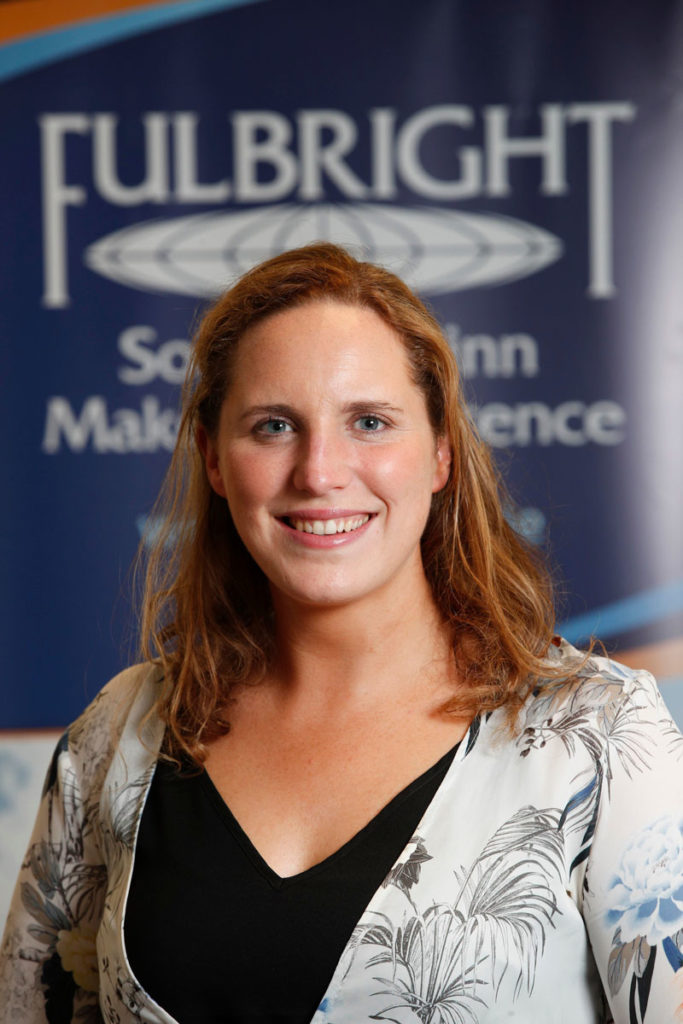
“I like maps and math,” Moriarty explained. “I’m passionate about learning and refining my skills in the interdisciplinary fields of spatial statistics, climate science and fisheries policy.”
Moriarty’s PhD research at Ulster University focuses on the changes in species distribution for temperate marine fish in Europe. Her Fulbright-Marine Institute research scholarship at the FAST lab allows her to work with internationally excellent fisheries ecologists with a strong international policy background that will help frame her work in a global context.
“This year I’ll also spend time in Cornell where I’ll have access to exceptional quantitative ecologists to expand my biostatistics knowledge as well as interfacing with the policy,” Moriarty said. “I have always had an interest in exploring the unknown, and seeking the best answer in data poor contexts. I enjoy the challenge this brings, and the satisfaction of shedding some light on a previously unknown area.”
Moriarty’s primary research interest is in developing and applying spatial modelling techniques to better understand distributional aspects of marine species ecology. The distribution of marine taxa is highly variable in space and time; they are affected by biological, environmental and anthropogenic drivers such as the interaction of individual life history and behavior, recruitment, predation and competition, habitat availability, fishing pressure, seasonality and long-term climate forcing. Given recent concerns over ecosystem effects of fishing and potential consequences of climate change, there is a need for good models and indicators that describe and quantify changes in fish distribution. The primary aim of her project is to analyze historic and current trends in the population dynamics of temperate marine fish on the western European margin to understand and predict future distributions in a changing world. She will utilize data from a variety of sources in the construction and critical evaluation of species distribution models (SDMs) based on environmental data that are spatially and temporally relevant.
The Fulbright program will allow Moriarty to apply state of the art techniques in spatial statistics to answer her research questions in fisheries sciences. It will help to broaden the applicability of her research by using and understanding the theory and applications of these techniques and how they apply to other physical, social and economic domains. Moriarty explained that the Fulbright program has also opened up opportunities for her to develop working relationships with American colleagues and gain exposure to different environments and governance structures.
Moriarty will be spending her Fulbright scholarship between Anchorage with the FAST Lab and Cornell University with her committee member and FAST Lab affiliate faculty member Dr. Suresh Sethi.
